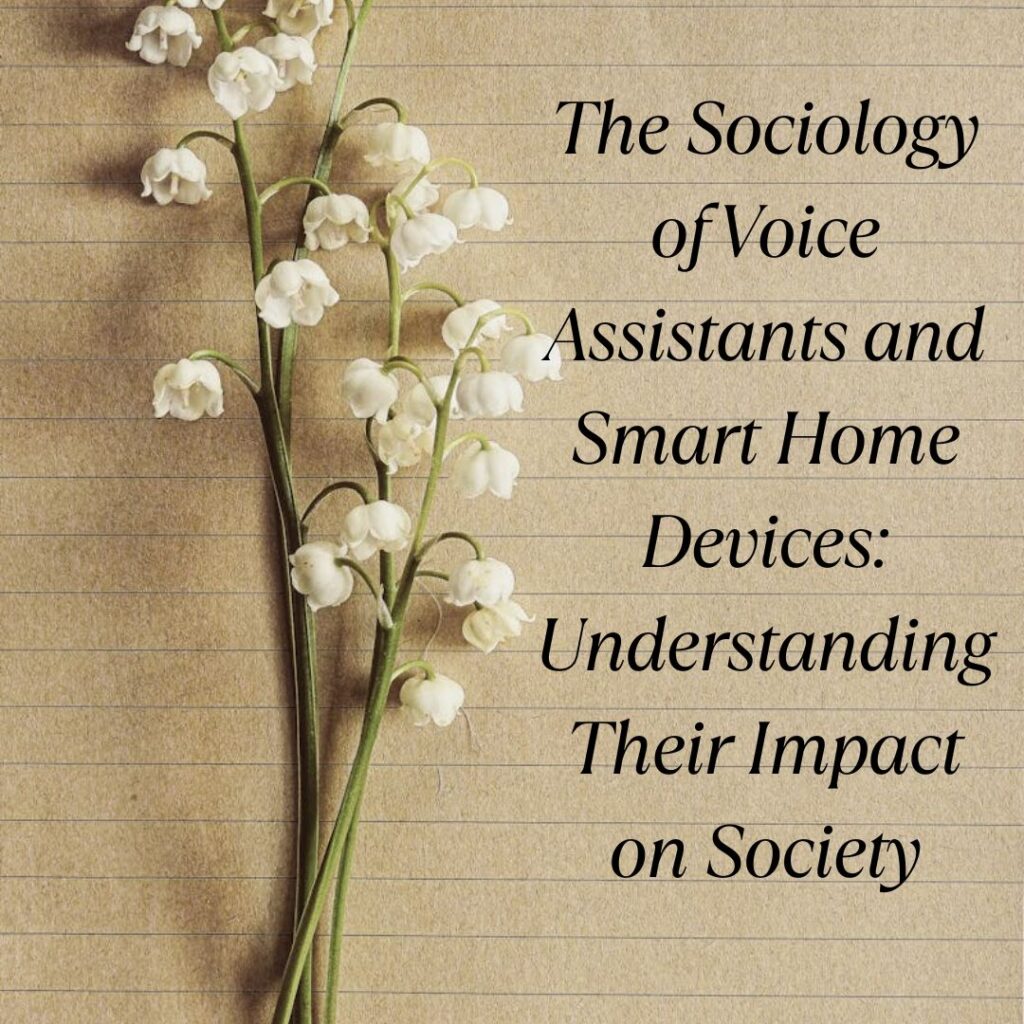In the era of rapid technological advancement, voice assistants and smart home devices have emerged as ubiquitous fixtures in many households worldwide. These technologies, ranging from Amazon’s Alexa to Google Home and Apple’s Siri, not only promise convenience but also raise intriguing sociological questions about their influence on human behavior, social interactions, and the structure of modern households. This article delves into the sociology of voice assistants and smart home devices, exploring their evolution, societal implications, and current trends.
Evolution of Voice Assistants and Smart Home Devices
Voice assistants like Alexa and Google Assistant have evolved from basic voice recognition systems to sophisticated AI-powered platforms capable of understanding and responding to complex commands. Initially designed for tasks such as setting reminders and playing music, they now control smart home devices, provide weather updates, and even facilitate shopping through voice commands. This evolution reflects a shift towards seamless integration of technology into daily life, transforming how people interact with their environments.
Societal Impact and Behavioral Changes
1. Technological Integration into Daily Life:
Smart home devices have reshaped routines and behaviors, offering convenience through automation of tasks like adjusting thermostats or locking doors remotely. This integration fosters a reliance on technology for mundane activities, potentially altering perceptions of home management and personal responsibility.
2. Communication Dynamics:
Voice assistants simulate conversational interactions, influencing how users communicate within their homes. This phenomenon blurs boundaries between human-human and human-machine communication, prompting debates on the impact of simulated relationships on social skills and interpersonal dynamics.
3. Privacy Concerns and Surveillance:
The proliferation of voice-activated devices raises privacy concerns regarding data collection and surveillance. Users must navigate trade-offs between convenience and privacy, highlighting tensions between technological benefits and ethical considerations.
Cultural and Social Implications
1. Digital Inequality:
Access to voice assistants and smart home devices is not universal, contributing to digital inequalities based on socioeconomic factors. This disparity affects individuals’ ability to benefit from technological advancements, reinforcing existing social divides.
2. Family Dynamics and Generation Gaps:
Adoption of smart home technologies varies across generations, influencing family dynamics and generational interactions. Older adults may perceive voice assistants differently than younger generations, impacting intergenerational relationships and communication patterns.
3. Redefining Home Spaces:
Smart home devices transform physical spaces into interconnected environments where technology mediates daily activities. This evolution blurs distinctions between public and private spheres, reshaping perceptions of home as a sanctuary versus a networked hub.
Current Trends and Future Outlook
1. AI Advancements and Personalization:
Continuous advancements in artificial intelligence enable voice assistants to offer personalized experiences tailored to users’ preferences and habits. This trend enhances user engagement while raising questions about algorithmic biases and data-driven decision-making.
2. Economic and Market Dynamics:
The smart home market continues to expand, driven by innovations in IoT (Internet of Things) and consumer demand for interconnected devices. This growth spurs economic opportunities while shaping market dynamics and industry standards.
3. Ethical Considerations and Regulatory Frameworks:
As voice assistants become integral to daily life, regulatory frameworks and ethical guidelines are crucial for safeguarding user rights and addressing concerns related to data privacy, security breaches, and algorithmic accountability.
Conclusion
Voice assistants and smart home devices represent more than technological conveniences; they embody sociocultural shifts in how individuals interact with technology and each other. Understanding their impact requires a nuanced exploration of technological adoption, behavioral changes, and societal implications. As these technologies evolve, so too must our understanding of their role in shaping contemporary lifestyles and social structures.
In summary, the sociology of voice assistants and smart home devices offers a compelling lens through which to examine the intersection of technology, society, and human behavior. By navigating complexities such as privacy, communication dynamics, and cultural norms, we can better grasp their profound influence on modern life and anticipate future developments in this dynamic field.
This article aims to provoke thought and discussion on the multifaceted implications of voice assistants and smart home devices, inviting readers to consider their own experiences and perspectives in the evolving landscape of technology and society.






